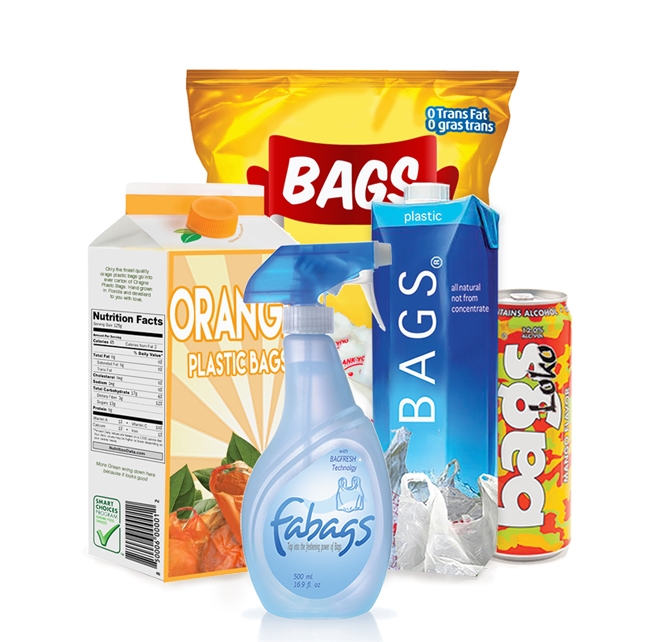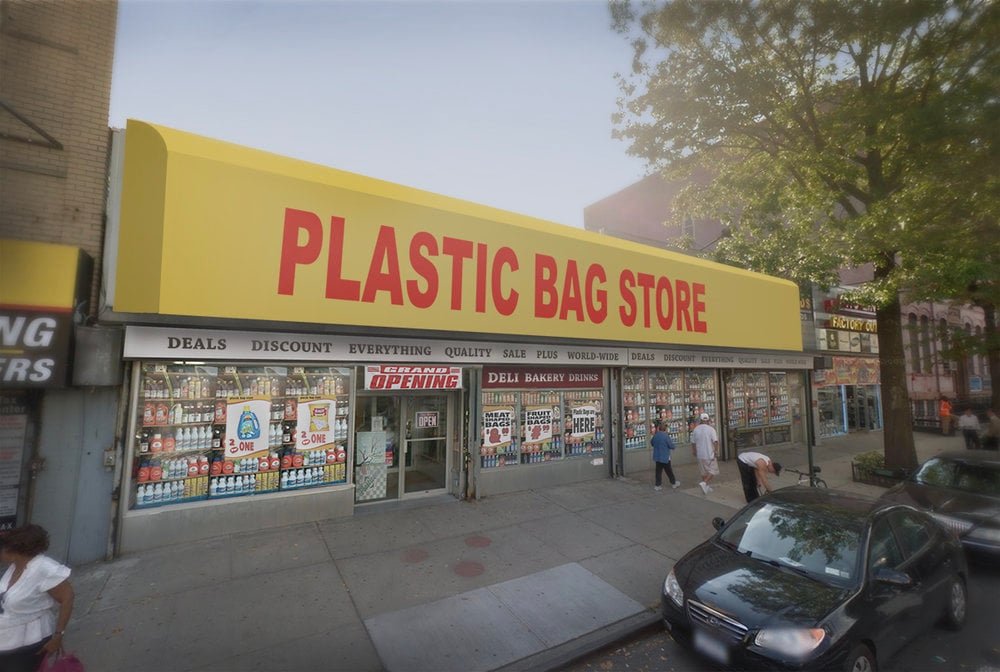This March, thousands of tourists milling through the neon-lit chaos that is Times Square will encounter something a little in between the frenetic advertisements and fast-fashion stores.
At first glance, what they find might look like a full-size, fully-stocked grocery store. In and of itself, this isn’t unusual for a city of around 8.6 million people, but this store is different; every single product—from the potato chips to the knock-off cans of Four Loko energy drink—is made from upcycled, single-use plastic.
What’s going on here? It’s , an art project by Brooklyn-based Robin Frohardt. Consider it an immersive installation with many (polymer) layers.
The concept has earned Frohardt both a Guggenheim Fellowship and a Creative Capital Award. The store originated at the University of North Carolina, and is making its New York City debut with Times Square Arts on March 18. At night, the site-specific work will transform into the set for a three-act puppet show directed by Frohardt with original music by Freddi Prince.

Products from . Courtesy of the artist.
It’s no coincidence that the project opens just as New York’s plastic-bag ban goes into effect on March 1, says the artist, who spoke to Artnet News ahead of the opening. The idea struck her years ago, she says, when she was walking through the aisles of a grocery store and realized the sort of situation at hand: “Everything was already wrapped in plastic, shrink-wrapped, and then placed into a double plastic bag at checkout. I was struck by the absurdity of that,” she says. And so, with , “I turned [the absurdity] up to eleven.”
We live in an increasingly plastic world, so it’s easy to forget how detrimental this stuff can be. It takes more than 500 years for the average plastic bag to degrade in a landfill. Plastic wrecks havoc on sea turtles and marine life; in some instances, as in the Great Pacific garbage patch, it helps spawn monstrous floating masses that are significantly larger than Texas.

Still from Robin Frohardt’s . Courtesy of the artist.
Forhardt is no stranger to the admittedly quirky world of puppetry; her 2013 play was a critical darling that, true to the artist’s style, addressed themes of public safety and personal identity. Herlatest puppet show, set to take place in imagines what it would be like for some future creatures to excavate the pounds of plastic left by contemporary humans. How might they misinterpret the significance of such an abundance? Most plastic bags are used for approximately 12 minutes, but based on their prevalence, some future observer might think they were precious objects. “We all romanticize the past,” Frohardt says. “It’s a way to be a part of the lineage of history.”
“I’m not trying to make people feel bad” with the play, she adds. “It’s not about shaming people, but if the project makes you take a second look around, and notice the degree to which we’re using this material, that’s huge.”

The previous iteration of Robin Frohardt’s . Courtesy of the artist.
To create the products in the store, Frohardt became “something of a plastic bag connoisseur,” she says. The bags she used were collected from friends and neighbors, all of whom were happy to get rid of the environmentally unfriendly weight.
In a statement, the artist said “there is no ‘away’ when we throw something out,” and that’s at the heart of the tragicomic play that unfolds at night. Like magic, the “store shelves” become stage platforms for the characters. Hidden doors are opened, and other visual trickery unfolds as the store transforms into an immersive theater set, with the products playing starring roles in the show.
Puppetry might not seem like an intuitive way to educate people about plastic waste and its effect on the environment, but for Frohardt, it makes perfect sense. “There’s something universal about puppetry,” she says. “It’s entertaining for everybody, and it’s a very forgiving medium that really helps you connect with the story.”
Source: Exhibition - news.artnet.com



